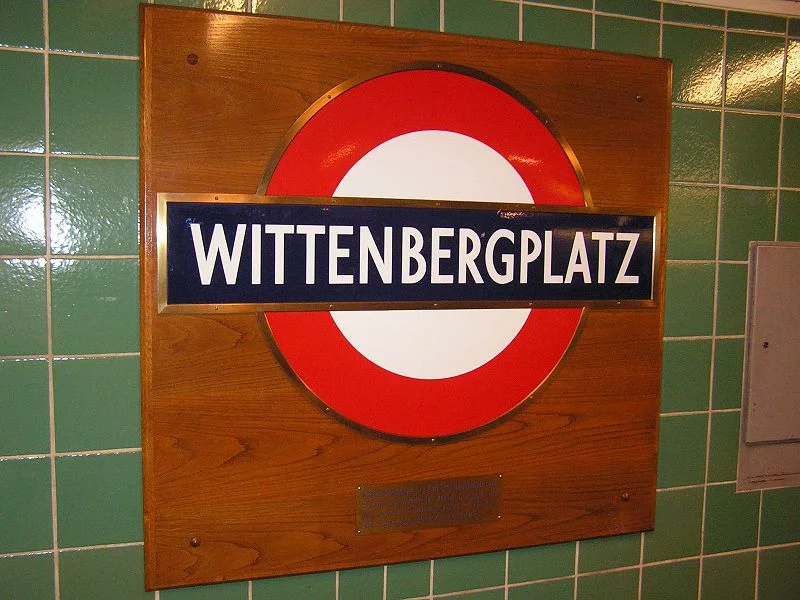London & Berlin: Cities of Equals?
“What are the Thundercats?”. Welcome to a German university circa 2016, where all manner of knowledge is bestowed, except for that of cult 80’s cartoons. Ask one of my students to explain Porter’s Five Forces or the importance of Maslow’s hierarchy of needs and you will get a careful and concise description of both, plus a little critique of their use in the business environment. Ask any of them to name Bravestarr’s robotic horse sidekick (Thirty/Thirty in case you were wondering) and they’ll look at you in the way I imagine I looked at my granddad every time he called the radio “the wireless”. Students just aren’t what they used to be, one of mine even has the temerity to be eighteen. Sickening. All I can hope for is that they graduate with reasonable marks and a nuanced understanding of defunct American cartoon series.
My other hope is that they come away with a better understanding of the UK, especially since June 23rd. Although my primary concern is teaching English, it’s difficult not to stray into questions of culture when discussing language. How else do I explain the importance of “sorry” or “I’m afraid that...”, or help them to understand that when we start a sentence with the word “unfortunately” what you are really saying is “Please sit down, what I’m about to say will shatter all realities that you previously knew and held dear”. It helps that, thanks to the education system in Germany, their English is already of a high standard. Much of my work consists of rounding the rough edges and preparing them for work in an English speaking environment. It helps even more if they have spent some time in the UK.
The average Germans connection with the UK can be tenuous at best. The queen, bad weather, food that is lathered in mint sauce are all tropes that you will hear regularly. The more advanced might have watched Downton Abbey or more recently The Crown. Next up from that, they may have travelled to some obscure part of the UK for a school exchange, like Broardstairs in Kent or some dark and woolly part of Cornwall. Mostly though, when you ask people where in the UK they have been, 90% will say “London”.
Whenever someone tells me they have been to the UK and answer “London” when I ask where they visited, I often reply “You haven’t been to the UK, you’ve just been to the Disney land version”. I do this because, at my very core, I’m an obnoxious Northern bellend. I also say it because it’s true. Going to London is a special event for many people, not just holidaymakers. It is the seat of government, the location of countless national and international corporate headquarters and the hub of the UK’s arts and culture. However, it isn’t exactly representative of the national experience. London has a younger population, employs more university graduates, attracts more immigrants than the rest of the UK and generates 22% of the UK GDP. On the downside 28% of Londoners live in poverty (7% higher than the rest of the UK), house prices on average are higher (£556,350 vs Newcastle’s £182,415) and beer is more expensive (so every northerner says). With regards to culture, London sees £10 spent by government on the arts in comparison to 70p in the rest of the country. When the referendum results came in, London was swimming against the Brexit current, voting on the whole to remain.
Yet, is Germany really any different. Berlin is hardly representative of the rest of the country. Germans routinely criticise Berlin for expensive infrastructure spending, with the state government demanding significant investment for “crumbling infrastructure” despite accumulating a “debt mountain” over the last decade. Culturally, Berlin is not representative. Visitors from Dresden, Munich or Frankfurt would not necessarily agree that the capital is the hub of all German culture. Germans might look south to Munich, before they ever thought about Berlin. Unlike London, it isn’t the financial capital either, Frankfurt holds that enviable title. In many ways, Berlin is still recovering from its past as a divided city. Numerous German companies relocated to Munich while Berlin was divided by the wall and are now being enticed to return, although this is no easy matter. Germany is a country of states and state capitals, all vying for attention from tourists and internal migrants.
Berlin like London, is the focal point of government, but because of the federal system, all state capitals have their own infrastructures and attract people of talent. Berlin does not and cannot monopolise skilled labour, meaning that the rest of the country isn’t drained of their talent pools. In fact, in some professions, such as teaching, it might be considered a step down. A teacher qualifying in Bavaria or Baden Württemberg, with some of the best systems of education in the country, might seek out a lower paying local job than make the move to the north.
Of course, this can be a source of problems. Germany is marked by friendly and not so friendly inter state rivalries over football, beer, sausages, taxes, laws and general politics. Even with these rivalries, there is a feeling that Germany has a fairer spread in comparison to the UK, especially when it comes to cultural spending. The history of Germany has produced cultural landmarks that cannot be simply relocated to Berlin, not without a fight at least. Would the UK benefit from this system? I’m not so sure, but a fairer distribution is hard to argue against. London is the first city of the UK, but it shouldn’t be at the expense of all the others.










